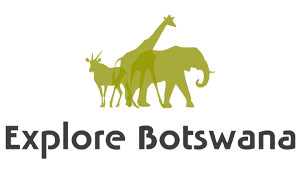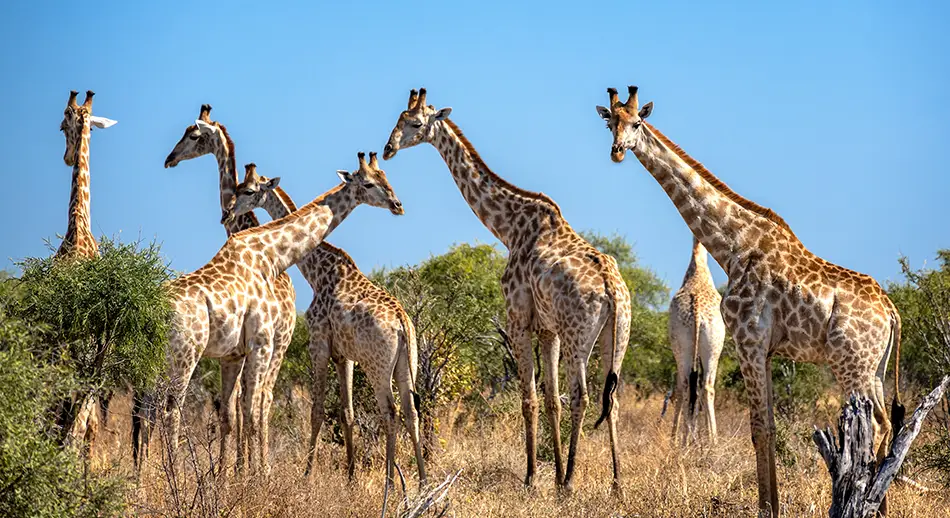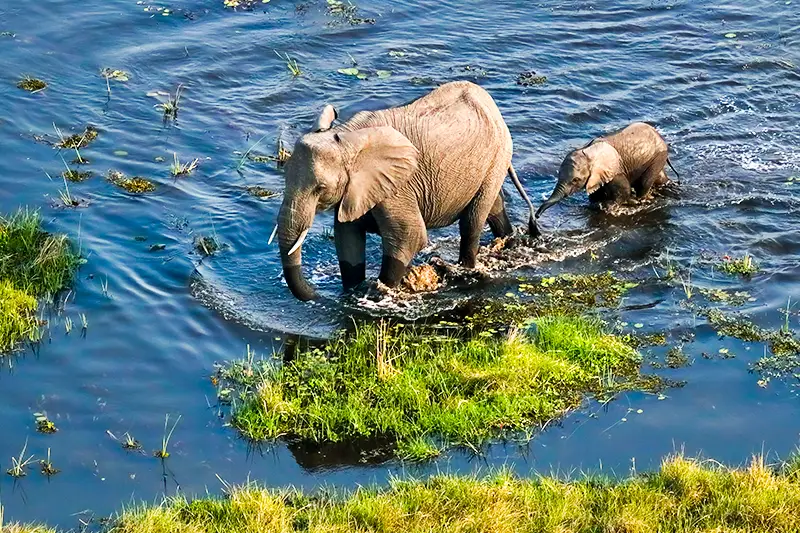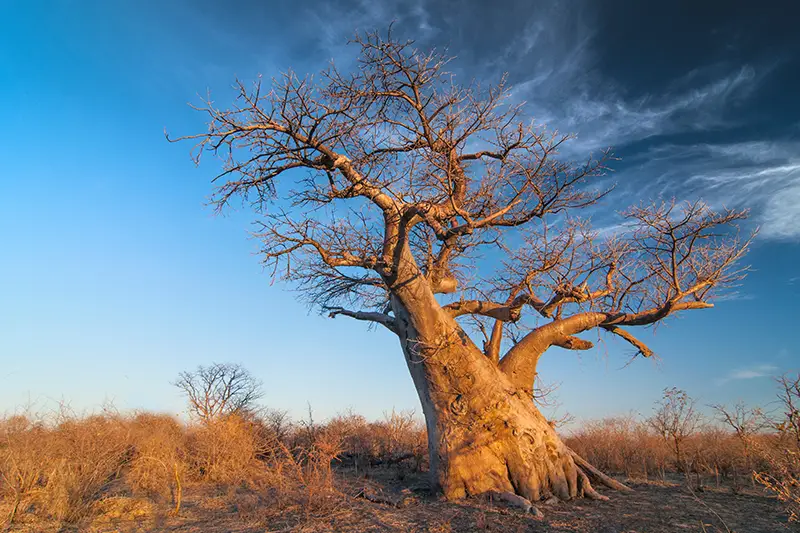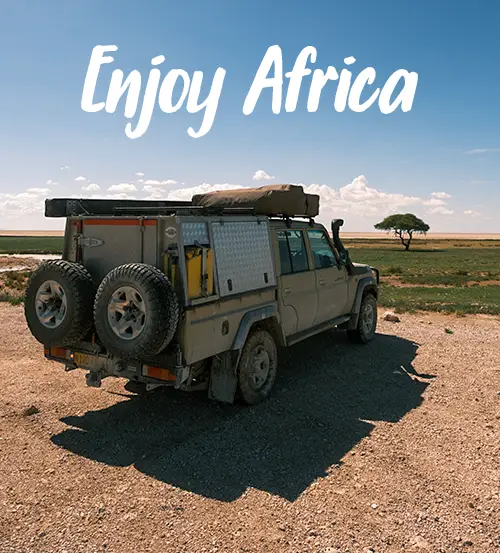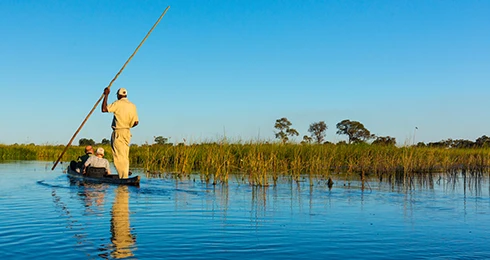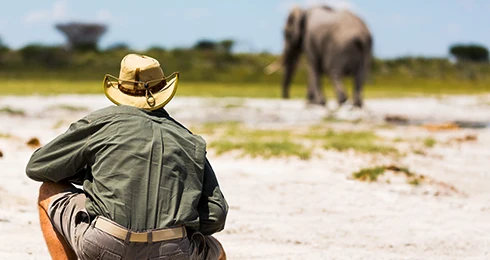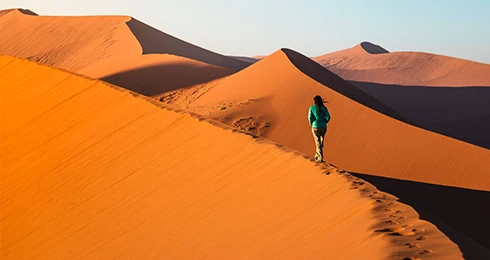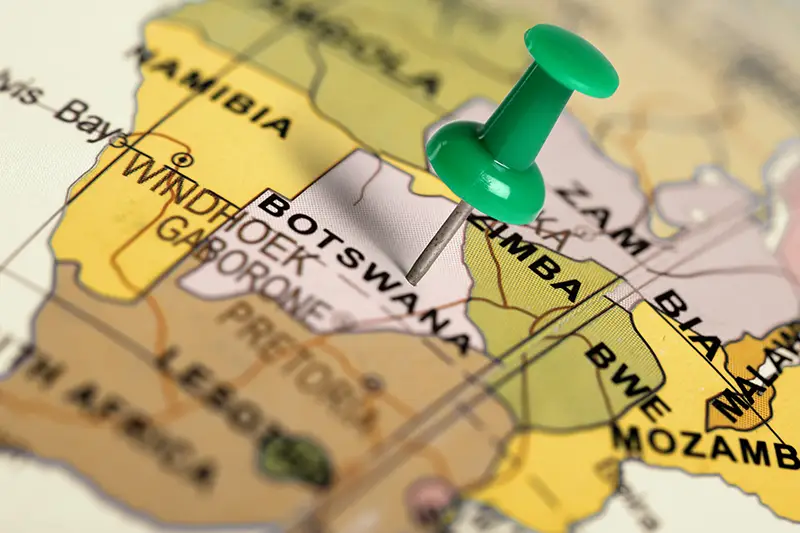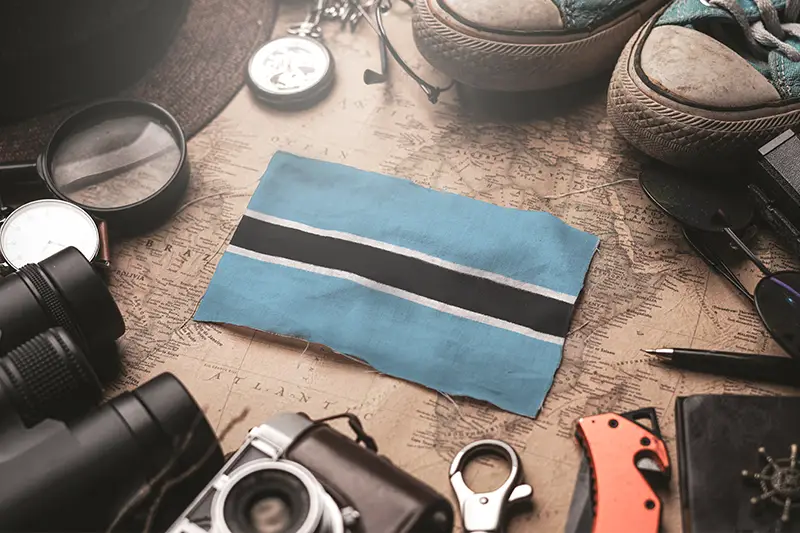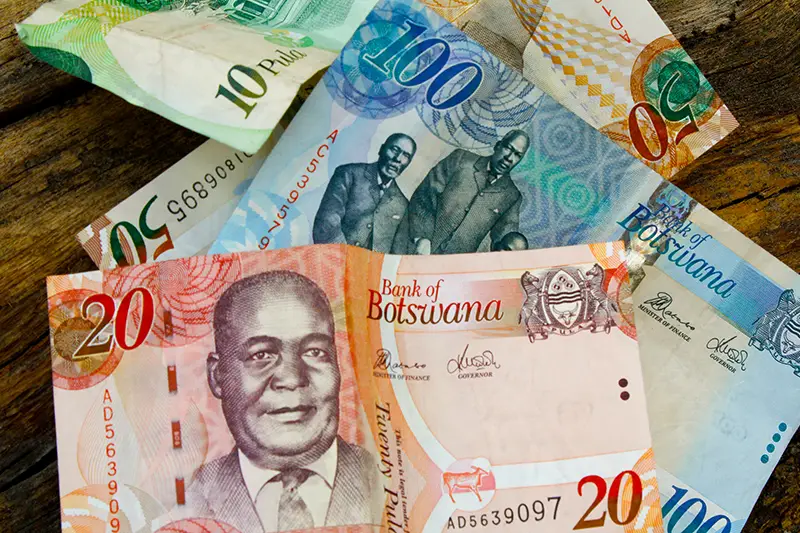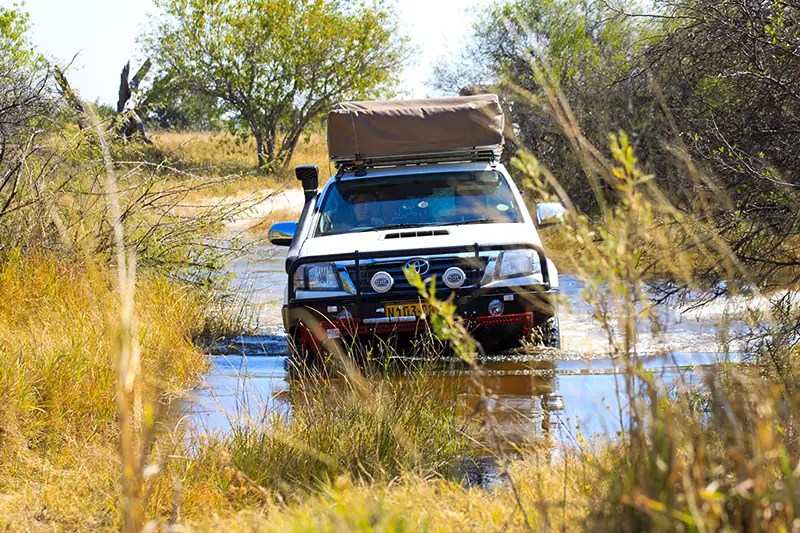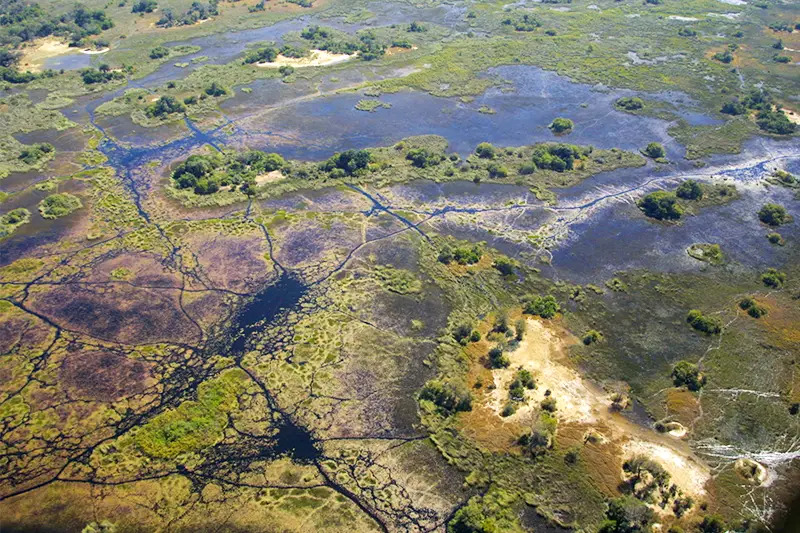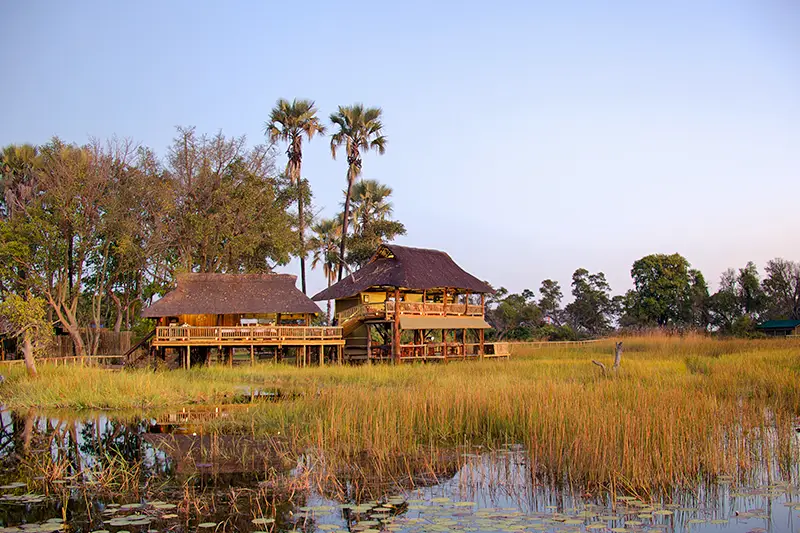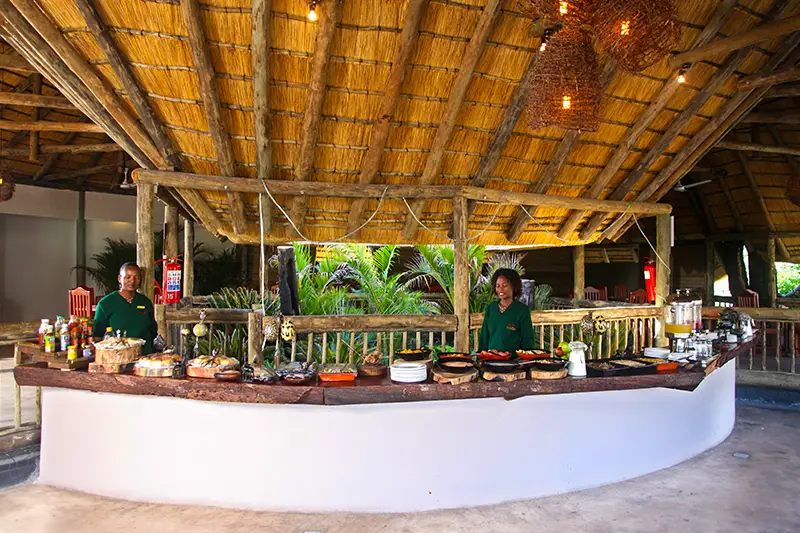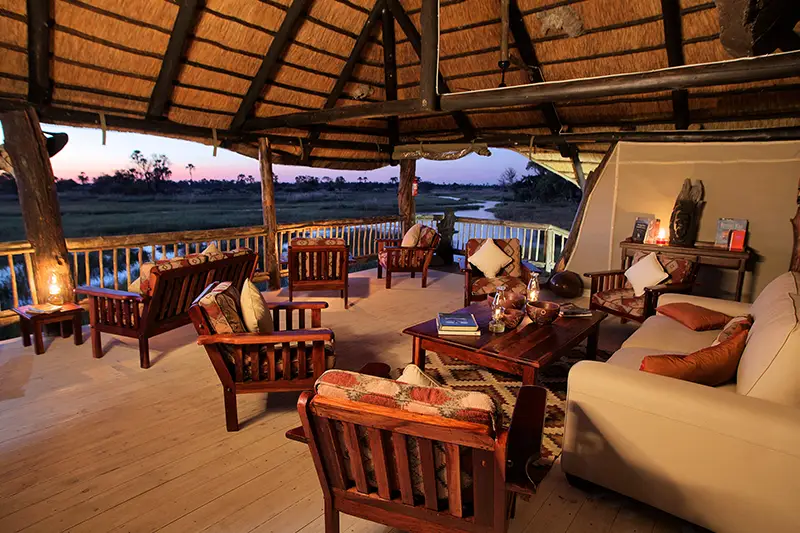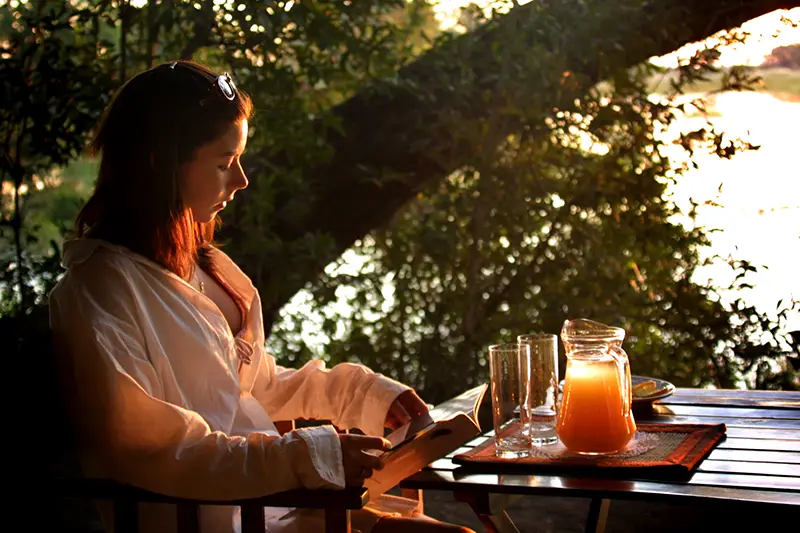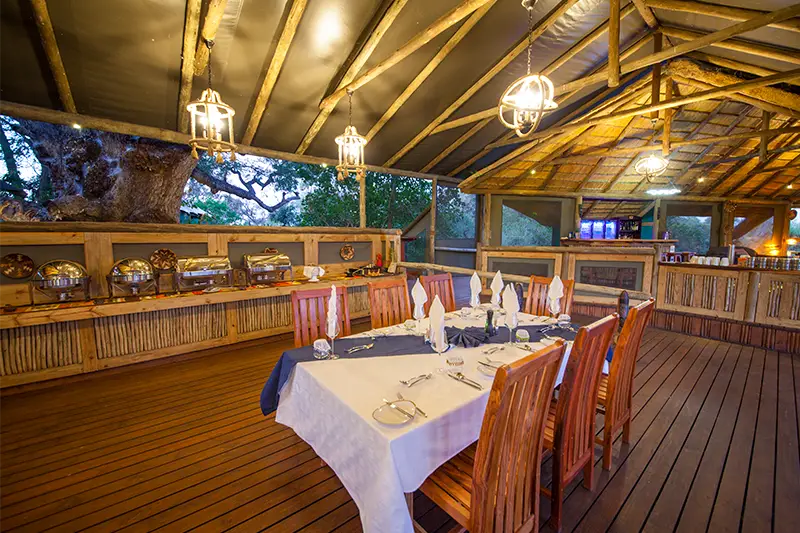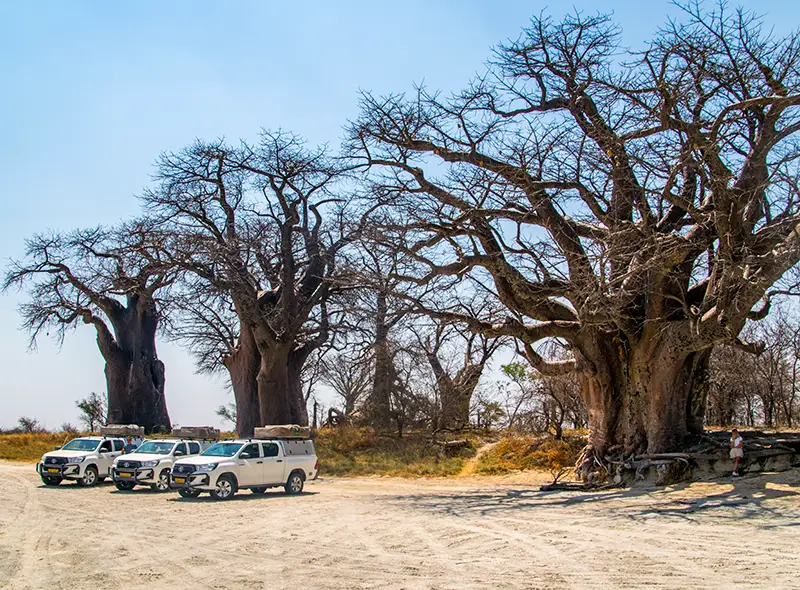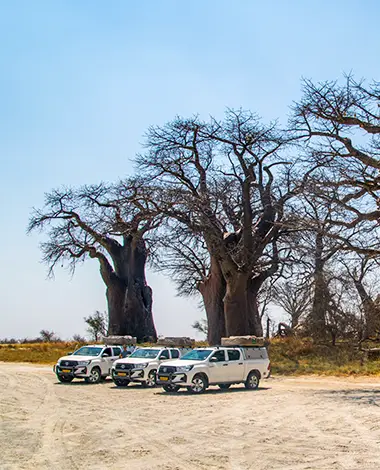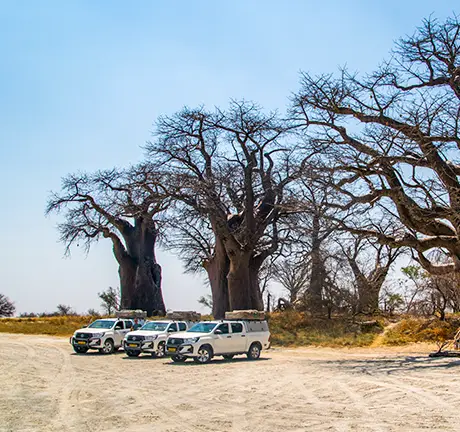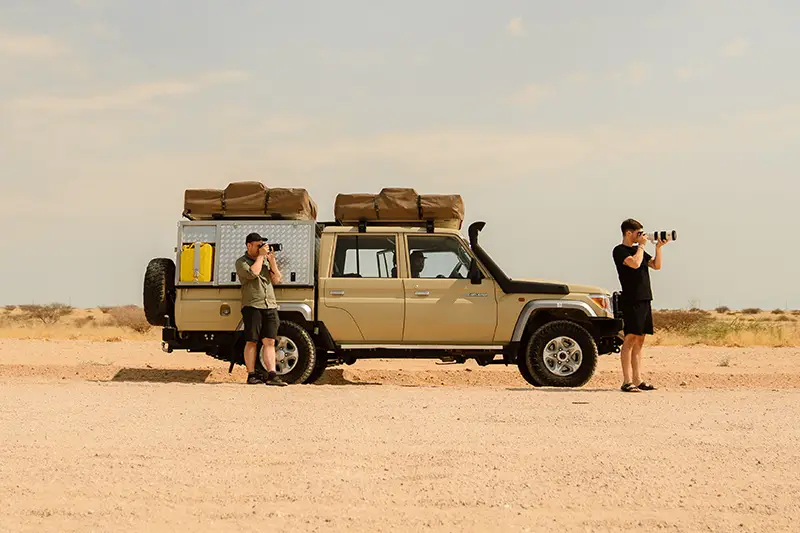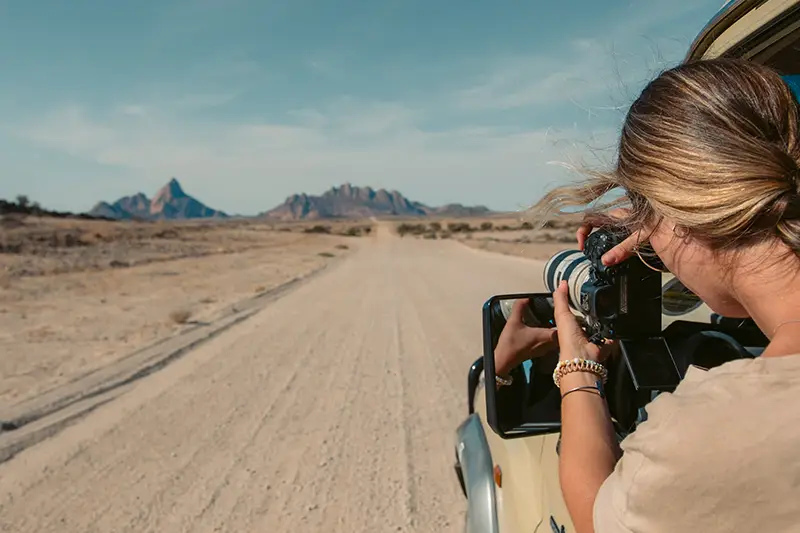TRAVELLING IN BOTSWANA
You chose Botswana as your holiday destination. Fantastic choice! Wondering about the ideal time to visit and how to prepare? We give you an overview, covering essential pre-trip considerations and valuable tips for a memorable safari trip in Botswana.
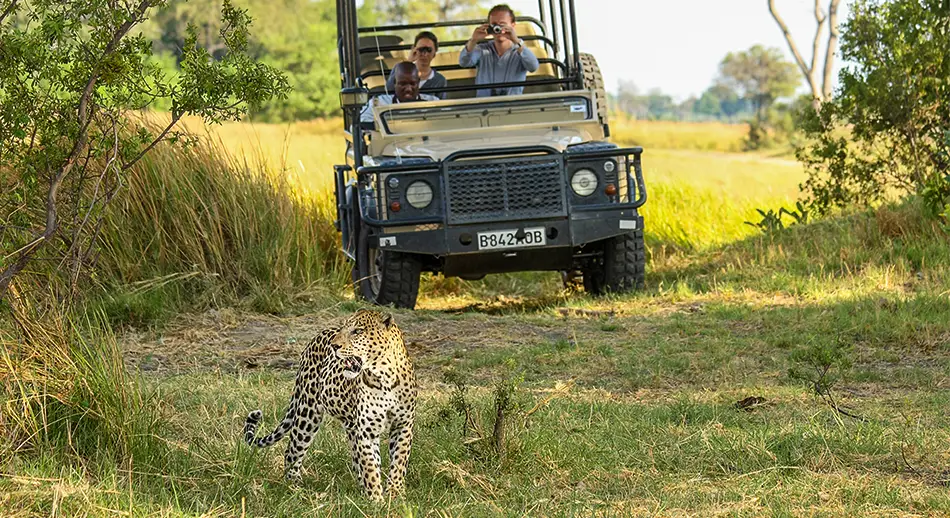
Best Time to Visit Botswana
Travelers can visit Botswana the whole year through, however it is good to keep in mind the pro’s and con’s of the four seasons. During the summer period (November – April) temperatures are higher and in general more rainfall can be expected. Rainfall makes the country fresh and greener. Landscapes are beautiful. Spotting wildlife in national parks can be more challenging as the vegetation is denser. Some National Parks such as the Moremi Game Reserve will in general be very wet during this period and hardly accessible.
Autumn (April – May) and Spring (September – October) are weather-wise quite similar. It is dry and temperatures are more moderate. From April onwards the landscape slowly loses its green color. We are heading for the winter (June – August). During this period, wildlife migrates towards rivers and waterholes, which makes it easier to spot animals. Keep in mind that the evenings can be cold, especially in the south.
Vaccinations
For Botswana, recommended vaccinations are DTP, and vaccination against hepatitis A. Malaria only occurs in northern Botswana. Ask your local health services for the most updated advice on vaccinations and preventative care.
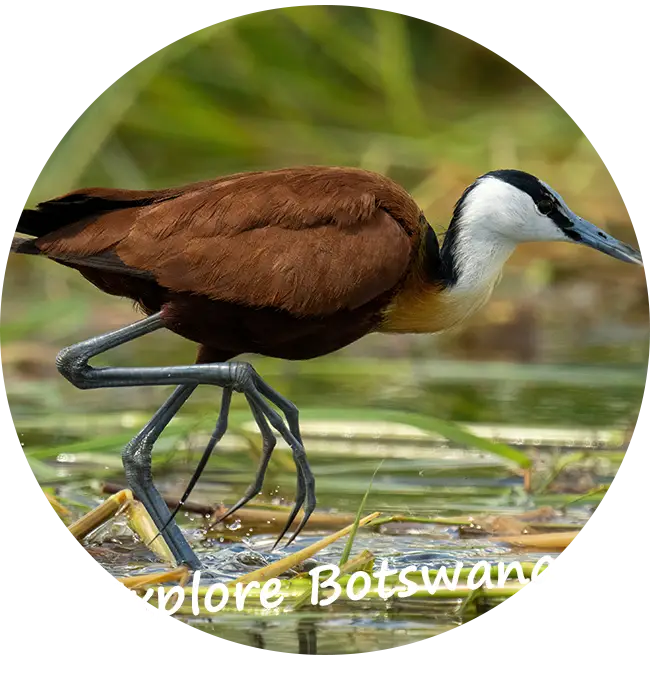
Explore Botswana offers organised self-drive holidays and safari tours to Botswana. You can go on an adventure in a fully equipped vehicle of your own choice. We will arrange your accommodations in advance, whether you wish to stay in lodges and guesthouses, on campsites or both.
Itineraries
14 Days Safari Tour
Explore the fascinating national parks and experience the best bits Botswana has to offer.
20 Days Safari Tour
Adventurous camping and you can hardly get closer in touch with nature.
21 Days Safari Tour
Seek diversity; from far stretching savannas, to lush green oases and abundant wildlife.
Visa
Botswana Visa & Immigration
Most EU citizens do not need to apply for a visa for Namibia and/or Botswana for a visit of less than 90 days. However, always check your own personal situation and in either case ensure and that you have:
A passport with validity of minimum 6 months
A proof of owning sufficient financial resources
A proof for the first destination after arrival
A proof of a return ticket or to the next destination after your holiday
An original unabridged birth certificate when travelling with children under the age of 18
Finances - Currency
Currency
The currency of Botswana is the Pula (BWP – €1 is about 12,30 BWP). For your daily expenses it is always important to have a wallet with smaller bills and keep the rest of your cash separated and out of sight.
Especially when you spend several days in more remote areas, like wild parks, ensure you have enough cash of the local currency (BWP) on you. Foreign exchange services are not easy to find. Furthermore, it is recommended to take a ‘mix’ of means for payment, including cash, a debit card and a credit card (VISA or MasterCard). There are always cases in which you cannot pay with your normal debit card. E.g. you need a credit card to rent your car. Also, we recommend having American Dollars with you for emergencies, which you will also need when crossing the border to Zimbabwe.
ATM
There are ATMs (Automated Teller Machines) in the larger destinations of Botswana. Remember that for every transaction you will be charged additional banking fees. Also do not forget to change the security settings of your bankcards to ‘Worldwide’ if necessary – ask your local bank for instructions.
Insurance
Travel and cancellation insurance
Ensure that you are well prepared to have a secure journey. The chance that something happens to you or your family before or during the trip is small, however, it is important to get the right insurance. It can save you costs and a lot of trouble! We strongly recommend a travel and cancellation insurance, so that any unexpected costs due to illness or accidents, costs of replacing stolen or lost baggage or necessary repatriation are covered.
We advise you to contact your local insurance agent or bank for information about the possibilities. Also, we recommend that you contact your healthcare provider to inform you about the coverage of possible medical expenses.
A day on self-drive safari in Botswana
- Wake up with the sound of singing birds and the roar of a distant lion while first rays of sunlight turn the dark night into a golden burst of color. Use last night’s hot coals to make a small fire for your morning coffee crispy breakfast.
- Ready for the day, pack up camp and prepare the car before you hit the road. You will be taken through far stretching landscapes and ever-changing sceneries while enjoying some good African music.
- You are on the lookout for wildlife crossing the road and with some luck may have to give ‘right of way’ for some elephants.
- You arrive at your next destination, join a guided game drive and see many antelopes and some big game up close. After the excitement, a refreshing swim in the pool followed with some relaxation and a good book under the shades of huge acacia trees.
- At sunset, this landscape shows its most beautiful side. Make some time to watch this natural wonder of changing colors see how shadows grow longer; listen to the howling of the jackal calling in the ending of another adventurous day in Botswana.
- Time for dinner around a roaring campfire complimented by fine South African wine or an ice-cold beer?
- Finally, fully satisfied, fall asleep under the starry sky and the sound of chirping crickets knowing that Botswana waits for tomorrow, with more adventures and unforgettable memories
Gratuity
Tipping in Botswana
In restaurants it is usual to give a gratuity of about 10% of your bill. Drivers and guides also appreciate a gratuity as this is often not just an extra, but most often forms part of their salary which a family lives from. In guesthouses and hotels, you will mostly find a ‘tip-box’ for gratuity which is then shared amongst everybody, as also the gardener contributes to you having a comfortable stay. People that do you a favor in public, like cleaning your window or watch your car, would normally receive gratuity too.
Food - Drinks
Food
Most of the food that is offered in Europe will also be found in Botswana. However, the emphasis here is on meat, especially game (e.g. Oryx, Kudu and Ostrich), beef and lamb. But vegetarians will find suitable alternatives with sufficient choices in supermarkets.
BBQ
The BBQ is probably the most important social event, which comes with salad, potatoes and a cold beer. ‘Biltong‘ is the most popular snack and is normally found in every car’s glove-box. Biltong is raw dried meat spiced with herbs and salt. Because it stays good for a very long time, it serves as a good snack during your safari. Another main dish is ‘miliepap’, a porridge made from corn flour and eaten with fingers.
Drinks
Avoid drinking tap water. Rather ensure that you carry enough bottled water with you: 5L water bottles are sold in supermarkets and fuel stations. Of course, South-African wine is sold in abundance and is of high quality. Good beers are more commonly brewed in Botswana.
Essential on your packing list to Botswana
- Binoculars
- Camera with extra SD card
- Travel guide/app
- Animal guide/app
- Headlamp
- Cap or hat
- CD's or USB with African beats
- Board games
- Water bottle with filter
- Pocket knife
Photography - Books
Photography
Botswana guarantees you the most beautiful pictures. For the real hobbyists, a telephoto lens is a must for wildlife-photography. However, keep some rules in mind while taking pictures. If you want to take pictures of people, always ask for their permission first. Especially at places that are popular for tourists, locals may ask for money for a picture. Negotiate friendly and do not secretly take a picture.
Books
There are many good guidebooks about Botswana, such as the Rough Guide, Lonely Planet and Bradt. For those guides that are specifically about Botswana’s nature you can always visit a local bookstore.
Botswana Travel Advice
Every traveller has their own preferences. Do you need assistance in planning your self-drive trip to Botswana? Our experienced tour consultants are ready to assist you! Together we fully customize the tour to your personal preferences, wishes and budget. We can assist you in many different ways. Our team of friendly and service-oriented Tour Consultants is available in Europe and Africa to assist you in creating a personalized proposal for your tailor-made trip to Botswana and to answer all your questions you might have.
Botswana Travel Advice
Every traveller has their own preferences. Do you need assistance in planning your self-drive trip to Botswana? Our experienced tour consultants are ready to assist you! Together we fully customize the tour to your personal preferences, wishes and budget. We can assist you in many different ways. Our team of friendly and service-oriented Tour Consultants is available in Europe and Africa to assist you in creating a personalized proposal for your tailor-made trip to Botswana and to answer all your questions you might have.
Explore Botswana’s Untamed Beauty: Your Guide to Self-Drive Adventures
Botswana Self-Drive Trips
The itineraries we offer to Botswana are fully customizable to your needs. You can book these, or you can use them for inspiration to build your own, tailor-made adventure to Botswana. See below some of our other sample itineraries to Botswana that we have put together. Explore Botswana will always make sure that you will experience the journey of your dreams!
Length: 14 Days (customizable)
Price from: €1.433,- EUR
Length: 19 Days (customizable)
Price from: €1.665,- EUR
Length: 18 Days (customizable)
Price from: €1.425,- EUR
